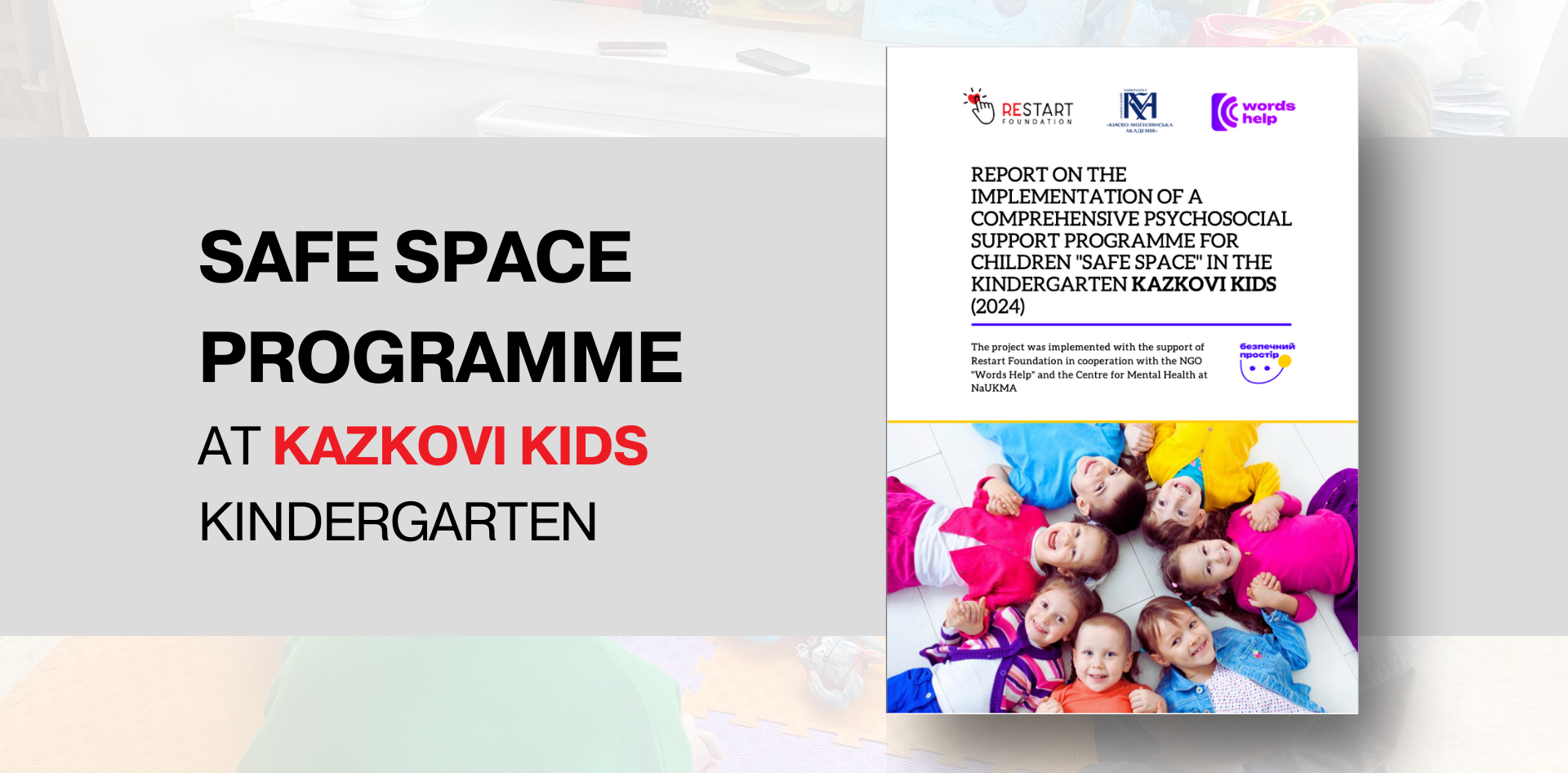
The Safe Space programme is a psychosocial support initiative designed to strengthen children’s resilience in times of war. It helps children, parents, and educators cope with constant stress, rebuild emotional security, and create supportive environments — even under bombardment and displacement.
This specific project was implemented with the support of Restart Foundation in cooperation with the NGO Words Help and the Centre for Mental Health at NaUKMA in November 2024. Together, these partners combined expertise in education, mental health, and humanitarian response to bring the programme into Ukrainian kindergartens.
Read the key findings below, or download the full document for details, methodology, and participant stories.
The reality we are responding to
War has touched every child in Ukraine — displacement, family separation and loss, destroyed homes and schools, disrupted treatment, and constant air-raid alerts all affect children’s mental health.
“Mum, I’m afraid that a drone will hit our house.”
“Dad, I’m afraid to fall asleep and not wake up.”
“Mum, I haven’t lived at all yet. I hate Russia because they are firing missiles at us.”
Since the full-scale invasion there have been 50,000+ air-raid alerts nationwide. During our project period (Jul–Sep) Kyiv had 137 alerts averaging 2h34m, and 67 more in November when this report was prepared.2
Despite the danger, children keep learning and playing. Our role is to protect, support, and build resilience — for children, parents, and educators.
Our response
From July to September 2024, Restart Foundation, in cooperation with the NGO Words Help and the Mental Health Centre of NaUKMA, implemented the Safe Space psychosocial support programme at the Kazkovi Kids kindergarten3.
Developed by NaUKMA in 2015, Safe Space builds children’s resilience in stress and wartime settings by creating safe routines, reducing psychosocial stress, and training adults to respond supportively.
Evidence (2023): improved psycho-emotional state in 37.6–68% of primary and 45.3–60.2% of secondary pupils; 64.7% reported increased resilience.
The programme launched amid heavy shelling (on day one, a rocket hit Okhmatdyt children’s hospital). Parents showed signs of chronic stress; many teachers were displaced and emotionally exhausted, and extreme heat and pollution complicated sessions. We adapted pacing and support accordingly.
Activities
- Observation and coaching for caregivers and teachers (stress management, responses to behaviour, parent communication).
- Small-group meetings for parents during shelling; targeted referrals for 1-to-1 support.
- Group sessions for children (younger/older; 11 sessions each) on emotions, fear/anxiety, and safe expression of anger.
- Shelter adaptations: activity boxes, projector to reduce blast noise, warmer child-friendly space.
People reached
Total participants: 37
| Beneficiaries | Quantity |
|---|---|
| Children | 14 |
| Managers of the kindergarten | 2 |
| Educators | 5 |
| Parents | 14 |
| Interns | 2 |
Team: 4 specialists — supervisor Oksana Zaleska, mentor/psychologist Olena Tkachenko, and interns Anastasia Naumova and Natalia Garyachek.
Referrals: 6 people referred to NaUKMA mental health centres for up to 12 free individual sessions; 4 completed care during the project period.
Feedback at a glance


